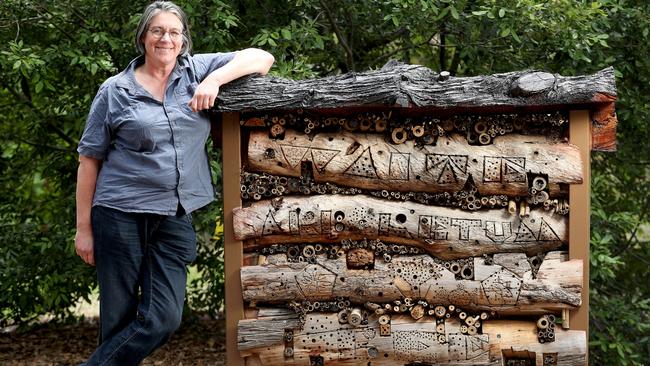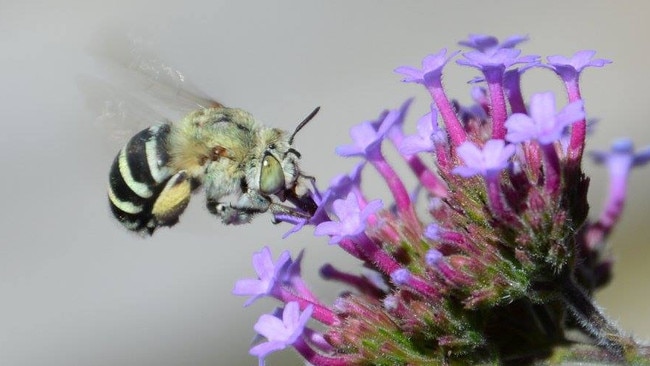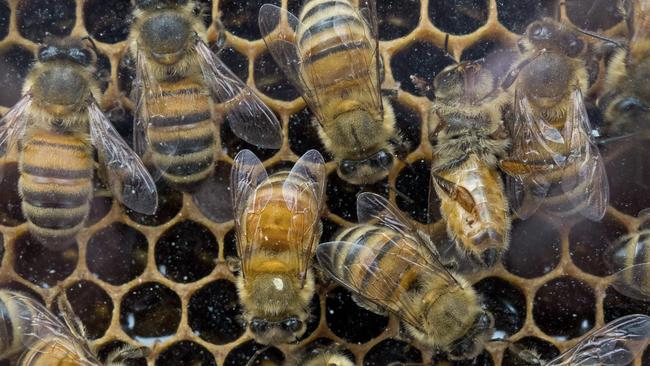University of Adelaide researcher Dr Katja Hogendoorn says backyard beekeeping is ‘selfish, harmful and dangerous’
Many backyard beekeepers started their hives to help the environment. But this Adelaide Uni expert says they are doing much more harm than good.
Pets and Wildlife
Don't miss out on the headlines from Pets and Wildlife. Followed categories will be added to My News.
The boom in backyard beekeeping is “selfish, harmful and dangerous” because the European honey bee deprives Australian animals of food and shelter, a university researcher claims.
State government figures show the number of registered beekeepers in South Australia has ballooned from 2550 to 3450 since 2019, while the number of hives they own is up from 68,600 to 74,000. It’s suspected there are many more who are unregistered.
There are likely to be at least 6000 hives across Greater Adelaide, or about two per square kilometre.
Adelaide University researcher Dr Katja Hogendoorn said suburban European honey bees consumed enough pollen each year in Adelaide to have otherwise raised 1.2 billion native bees.
And in turn, the native bees would have fed, for example, 6000 willy wagtails that won’t eat the European bees.

“If we want urban biodiversity, we should remove honey bee hives from our backyards,” she said.
“I want people to realise that backyard beekeeping is profoundly damaging.
“Swarms should be caught and killed. Feral honey bee hives in urban trees – ditto. People should give up backyard beekeeping. It is selfish, harmful and dangerous.”
Dr Hogendoorn said butterflies, beetles and many other native insects were also being deprived of pollen.


“Many more insect-eating birds would (also) be unable to find sufficient food, so the consequences are much worse,” she said.
“And, because not all hives are registered, the actual problem is much, much worse (than the statistics show).
“And then we are not even talking about the effect of the many feral honey bee colonies in the trees.”
Other problems included hive owners failing to care for them properly, resulting in disease or bees running out room that drove swarms out, only to displace native animals and birds from their homes in places such as tree hollows.
Bee Keepers Society of SA president Susan Lonie said beekeepers were required to manage hives to prevent swarms escaping, and to catch them if they did.
“Beekeeping comes with responsibility,” she said.
“You can’t just get a hive and put it in the backyard and think it’s nice – the same as you can’t get a cat or dog and just do nothing with it.
“But if people want to help bees, the biggest thing they can do is actually plant a variety of … things that flower at different times of the year and are different shapes and sizes.
“That helps all insects and birds as well. Stop using pesticides and insecticides in your garden and put out freshwater in a variety of containers.”
Primary Industries and Resources SA said there people interested in taking up beekeeping should consider their “ability and commitment” to regular management and inspections of hives so bees “don’t spread disease, swarm, become a nuisance, or overpopulate an area”.
Annual registration is free for four or fewer hives. For five or more the cost is $46.50.





